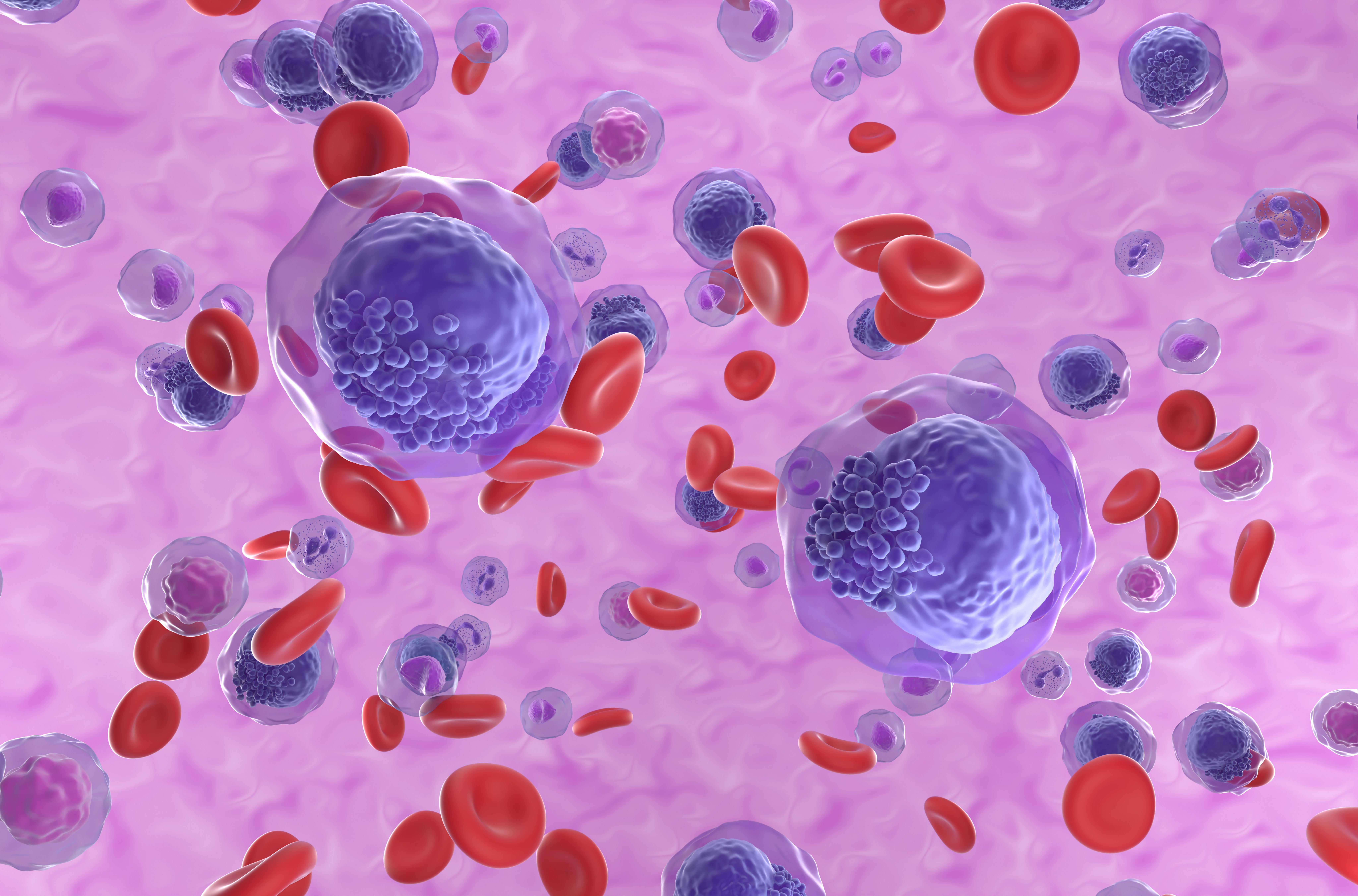FDA Fast Tracks DSP-5336 in NPM1/KMT2A+ Acute Leukemia
The FDA granted a fast track designation to DSP-5336 in relapsed/refractory AML with a KMT2A rearrangement or NPM1 mutation, showing promising results and safety in early trials.

- The FDA has granted DSP-5336 a fast track designation, supported by updated findings from an ongoing phase 1/2 study (NCT04988555).
- DSP-5336 is an investigational Menin and mixed-lineage leukemia inhibitor.
- The agent is being developed for the treatment of patients with relapsed/refractory acute myeloid leukemia (AML) with a KMT2A rearrangement, also known as, mixed lineage leukemia (MLL) rearrangement or NPM1 mutation.
The FDA has granted a fast track designation to DSP-5336 for the treatment of patients with relapsed/refractory AML with a KMT2A rearrangement, also known as MLL rearrangement or NPM1 mutation.1
Findings from the ongoing open-label, dose-escalation and dose-optimization portion of a phase 1/2 study evaluating DSP-5336 presented at the European Hematology Association (EHA) 2024 Hybrid Congress showed that the agent delivered positive results in patients with acute leukemia with certain genetic markers. Fifty-seven patients received various doses of DSP-5336 and, when given at a dose of 140 mg twice daily or higher, the agent seemed to work best, especially in the 21 patients with either an NPM1 mutation or KMT2A rearrangement documented by local testing.1,2
Twelve of the 21 patients (57%) responded to treatment, including 5 (24%) who had complete remission or complete remission with partial hematologic recovery. For safety, the agent was safe and well-tolerated with no dose-limiting toxicity (DLT) observed in the study. There were also no significant cardiac signals seen, and no treatment-related discontinuations or deaths were reported.
"The field of Menin inhibitors is close to becoming something that is going to be a standard-of-care, hopefully even by next year if things go well," said Naval Daver, MD, director, Leukemia Research Alliance Program, and professor in the Department of Leukemia at The University of Texas MD Anderson Cancer Center, and lead author on the DSP-5336 poster at EHA, in an interview with Targeted OncologyTM.
Additional findings showed that DSP-5336 interacted well with other azoles, and repeat dosing resulted in little to no pharmacokinetic accumulation. No patients required differentiation syndrome (DS) prophylaxis, and while 3 cases of DS were reported (5%), they each were manageable, and patients did not need intensive care unit stays or discontinuation of DSP-5336.
Acute myeloid leukemia/AML: © LASZLO - stock.adobe.com

"Patients with AML with KMT2A (MLL) rearrangements or NPM1 mutations face a difficult prognosis, because there are currently no approved, targeted therapy options to treat their specific disease. As per FDA guidance, fast track designation is granted to a drug that is intended to treat a serious condition and for which non-clinical or clinical data demonstrate the potential to address unmet medical need," Jatin Shah, MD, chief medical officer of Oncology at SMPA, told Targeted OncologyTM.
"The fact that FDA granted fast track designation for DSP-5336 reflects their perspective that the data for DSP-5336 demonstrate the potential to address a high unmet medical need. In other words, there are no existing therapies for these patients – and that represents a significant and urgent unmet medical need. The fast track designation for DSP-5336 means we have the potential for more frequent conversations with the FDA. We are proud to be advancing clinical development of this compound with the hope of providing an effective and well-tolerated treatment option to patients and families facing the challenge of a relapsed or refractory acute myeloid leukemia diagnosis," Shah continued.
About DSP-5336
DSP-5336, an investigational small molecule inhibitor of the Menin and MLL protein interaction. Preclinically, DSP-5336 has shown selective growth inhibition in human acute leukemia cell lines with KMT2A rearrangements or NPM1 mutations. DSP-5336 reduced the expression of the leukemia-associated genes HOXA9 and MEIS1 and increased the expression of the differentiation gene CD11b in human acute leukemia cell lines with MLL rearrangements and NPM1 mutation.1
The phase 1/2 study is currently evaluating the safety and efficacy of DSP-5336 in patients with relapsed/refractory acute leukemia.3 Phase 1, the dose-escalation portion of the study, aims to determine the recommended phase 2 dose of the agent. Phase 2, the dose-expansion portion, plans to further assess the safety and clinical activity of DSP-5336 in adult patients with relapsed/refractory AML with MLL rearrangements or NPM1 mutations.
Patients aged 18 years or older (or 20 years if required by local regulation) with an ECOG performance status of 0 to 2 and an estimated life expectancy of at least 3 months are eligible for enrollment in the trial. Treatment-related toxicities must have resolved in patients to be grade 1 or less before being enrolled in the study, excluding grade 2 or lower alopecia or neuropathy.
Assessing the safety and tolerability of DSP-5336, determining the recommended dose of the agent in phase 1, and evaluating the clinical activity of DSP-5336 in phase 2 serve as the primary end points of the study. The secondary end points include determining the clinical activity of DSP-5336 in phase 1 and evaluating the safety and tolerability of the agent in patients with relapsed/refractory AML in phase 2.